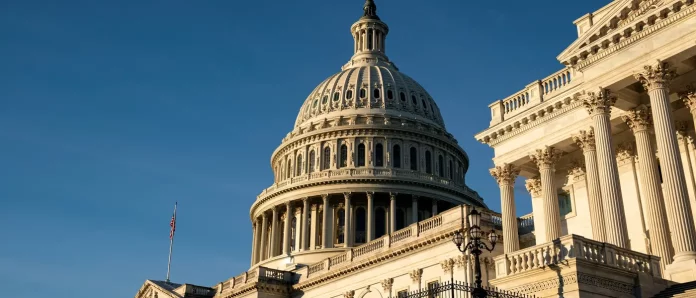Three US lawmakers have asked the Justice Department to investigate the International Crisis Group, after a report by Iran International revealed that the ICG signed an undisclosed deal with the Iranian government in 2016.
In a letter dated February 5 addressed to Attorney General Merrick Garland, a copy of which was obtained by Iran International, US Representative Jim Banks (R-IN), Elise Stefanik (R-NY) and Mike Waltz (R-Fl) call for an investigation into the potential violation of the Foreign Agents Registration Act (FARA) by the ICG, a think tank that advises the US government.
An investigation by Iran International, published last week, showed that the Iranian government in 2016 signed a previously undisclosed agreement with the International Crisis Group, and used the organization to lobby the Obama administration on its behalf about nuclear issues.
According to a cache of documents obtained by Iran International, the Crisis Group signed a memorandum of understanding (MoU) with the Iranian Foreign Ministry’s in-house think tank, the Institute for Political and International Studies (IPIS), but never made it public. The MoU outlined a framework for “scientific and academic interactions,” aimed to “promote and intensify the friendship and the mutual understanding,” the documents showed.
“FARA requires all individuals in the United States acting as agents of foreign principals to regularly disclose their status and activities as a foreign agent to the Department of Justice,” the lawmakers noted in their letter to Mr. Garland. They emphasized that the law was meant to prevent organizations operating in the United States “from secretly serving the interests of a foreign power and to provide transparency to reduce foreign agents’ ability to credibly promote propaganda from hostile governments.”
The Crisis Group is headquartered in Belgium, but also maintains “a substantial presence in the United States,” according to the lawmakers. “While the Crisis Group ostensibly conducts research on conflict resolution, recent reporting has revealed that the group has a disturbing and longstanding official relationship with the government of Iran,” they said.
More than 50 Western research institutions – including the Crisis Group – had boycotted the Iranian foreign ministry’s IPIS for hosting a anti-Holocaust conference in 2006, but the Crisis Group was one of two organizations that reversed course and signed a formal agreement with the IPIS a decade later.
A half-dozen leaders in Western think tanks expressed surprise to Iran International and Semafor, our partner in the investigation, that the Crisis Group entered into a formal research agreement with the IPIS and said the partnerships with foreign governments, especially Iran, could raise concerns about the think tank’s objectivity and potential lobbying for foreign interests.
A sanctions attorney based in Washington, who requested anonymity, said that from a legal liability perspective, there was a question of whether the Crisis Group complied with the registration requirements outlined in FARA or the Lobbying Disclosure Act if they were actively advocating for Iranian interests within the United States.
Responding to questions on this occasion, the think tank told Iran International, “Crisis Group only acts to resolve conflict, not for or on any country’s behalf. Iran’s threats to our staff and accusations that we work for the US and Israeli governments have been ongoing for more than a decade and underscore our independence. We are fully compliant with U.S. law.”
However, the members of Congress concluded their letter by demanding a Justice Department investigation. “There is a clear pattern of behavior indicating that the Crisis Group is in fact not an independent organization, but a chief mouthpiece of the Islamic Republic of Iran in the United States. Given this evidence, we urge you to launch an investigation of the Crisis Group without delay for potential FARA violations to protect our nation from malign foreign influence.”


